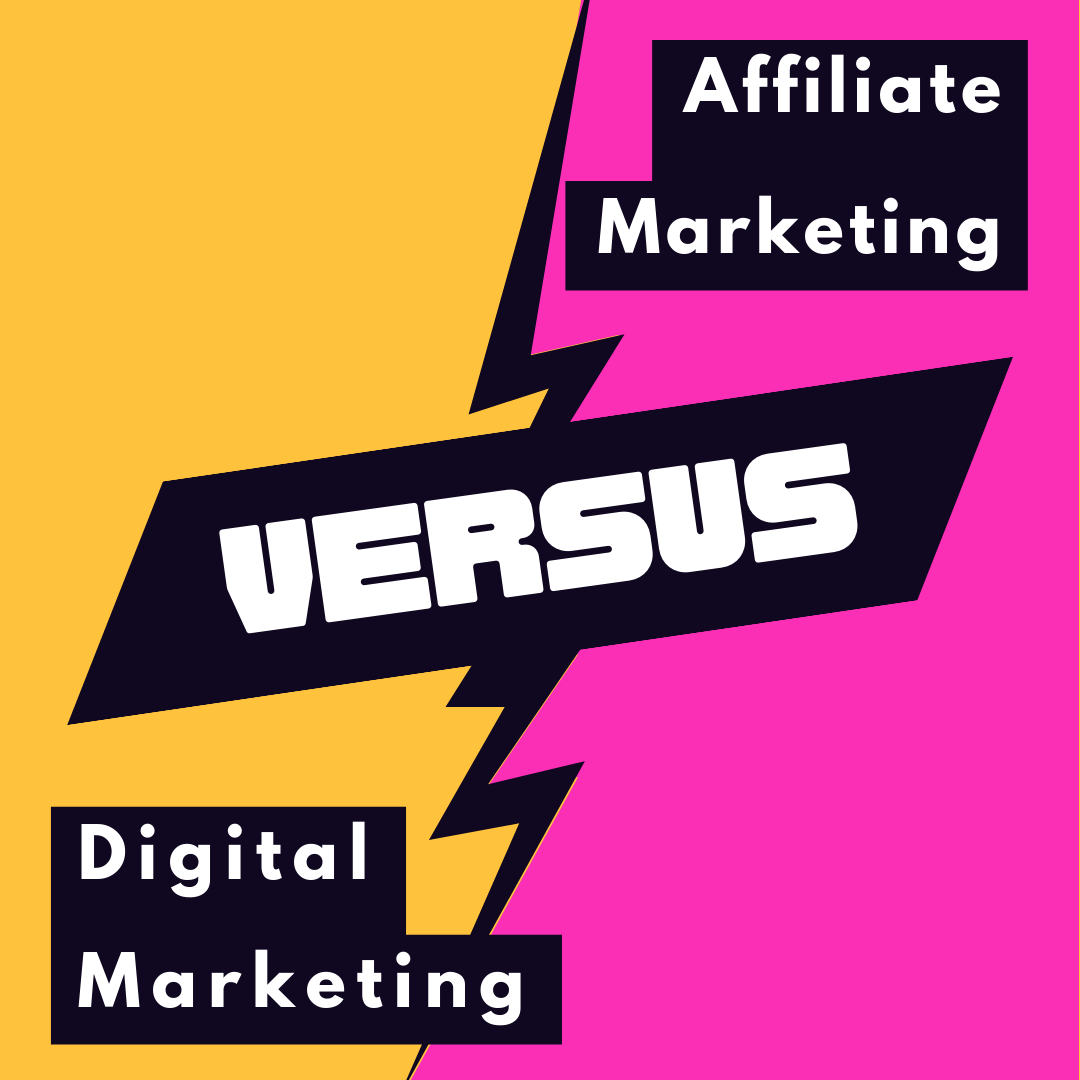Digital marketing has become widely popular across industries and corporations. It involves influencer, affiliate, organic, and other business promotion and awareness methods. Today, we will discuss the key differences between affiliate and digital marketing. But before we do that, it is essential to know more about these phrases.
What is Affiliate Marketing?
A person who promotes the goods and services of an organization at their behest in exchange for monetary or other benefits is commonly referred to as an affiliate. Such people often have a high level of followers, influencers, website traffic, or connections and use their platforms for publicizing the products or services. The end goal of the activity is building awareness, branding, sales, or every aspect of marketing. How Affiliate Marketing Works?
How Affiliate Marketing Works?
Payouts to affiliates are determined by their social proof. They get a specific code when they sign up for an affiliate network, which they can share online to give discounts or access to exclusive deals. YouTube channel owners can profit from each sale by placing affiliate links in the display adverts that appear beneath content on the platform. For many people, this type of affiliate marketing has evolved into a secondary or passive source of income.
Affiliates can monitor and get paid for promotional activities using specific codes or URLs. Users can obtain special discounts or offers by sharing these codes or links online or otherwise. For example, YouTube channel owners’ affiliate links are usually displayed as display advertising underneath their videos. The channel owner receives a commission each time a viewer clicks on these links and purchases something. This strategy has grown in popularity for affiliate marketers to make extra money.
What is Digital Marketing?
Digital marketing involves generating awareness, branding, promotion, and online activities that benefit an organization. It involves Search Engine Optimization (SEO), Affiliate Marketing, Social Media Marketing (SMM), Pay-Per-Click (PPC) Ads, and many other practices.
How Digital Marketing Works?
Broadly, SEO is subcategorized into on-page and off-page techniques, whereas the former includes optimizing the website of an organization to increase traffic primarily. On the other hand, off-page SEO involves practices outside the website domain to achieve the company’s marketing goals. SEO constantly involves viewed analytics to review the results of the said practices and find new ways of reaching new goals.
Similarly, SMM includes publishing or republishing content on LinkedIn, Twitter, Facebook, and other social media handles. PPC advertising involves text, video, image, and carousel ads directed to get more leads, sales, or calls through ads published on search engines like Google, Opera, Microsoft Bing, Firefox, and Yahoo.
Although the concepts of affiliate and digital marketing differ significantly, their end goals might match. But, a critical difference between them is that the organization hires a digital marketer in-house, and affiliates are recruited remotely or on a contract basis.
Conclusion – Digital Marketing vs Affiliate Marketing
To sum up, a multimodal approach is used in digital marketing to engage users across various online channels, such as social media, SEO, content production, and targeted advertising. Conversely, affiliate marketing uses partnerships and performance-based rewards to advertise goods and services.
Businesses can reach a larger audience, improve their online exposure, and make significant revenue by employing these strategies efficiently. Combining affiliate marketing with digital marketing techniques can offer a complete strategy that optimizes revenue creation and brand visibility.
FAQs
1. What is the difference between affiliate marketing and digital marketing?
Ans– The main difference between affiliate marketing and digital marketing is that affiliate marketing is a type of performance-based marketing, while digital marketing is a broader term that encompasses all forms of online marketing.
In affiliate marketing, the business only pays the affiliate when the affiliate generates a desired result, such as a sale, lead, or click. In digital marketing, the business may pay the marketer for their services regardless of whether or not they generate any results.
2. Which is better, affiliate marketing or digital marketing?
Ans– There is no one-size-fits-all answer to this question, as the best approach will vary depending on the specific business and its goals.
If you are looking for a way to generate sales quickly and with minimal upfront investment, then affiliate marketing may be a good option for you. If you are looking for a more comprehensive approach to marketing your business online, then digital marketing may be a better option for you.
3. Can I use affiliate marketing and digital marketing together?
Ans– Yes, you can use affiliate marketing and digital marketing together. In fact, many businesses do. You can use digital marketing to promote your affiliate program and to attract high-quality affiliates. You can also use digital marketing to promote the products or services that you are promoting as an affiliate.
4. What are some examples of affiliate marketing?
Ans– Here are some examples of affiliate marketing:
- A social media influencer who promotes a clothing brand in exchange for a commission on sales that they generate.
- A blogger who writes reviews of products and services and includes affiliate links in their articles.
- A website that offers coupons and discounts for products and services in exchange for a commission on sales that they generate.
- A YouTuber who creates videos about products and services and includes affiliate links in the video description.
5. What are some examples of digital marketing?
Ans– Here are some examples of digital marketing:
- Search engine optimization (SEO)
- Search engine marketing (SEM)
- Social media marketing
- Content marketing
- Email marketing
